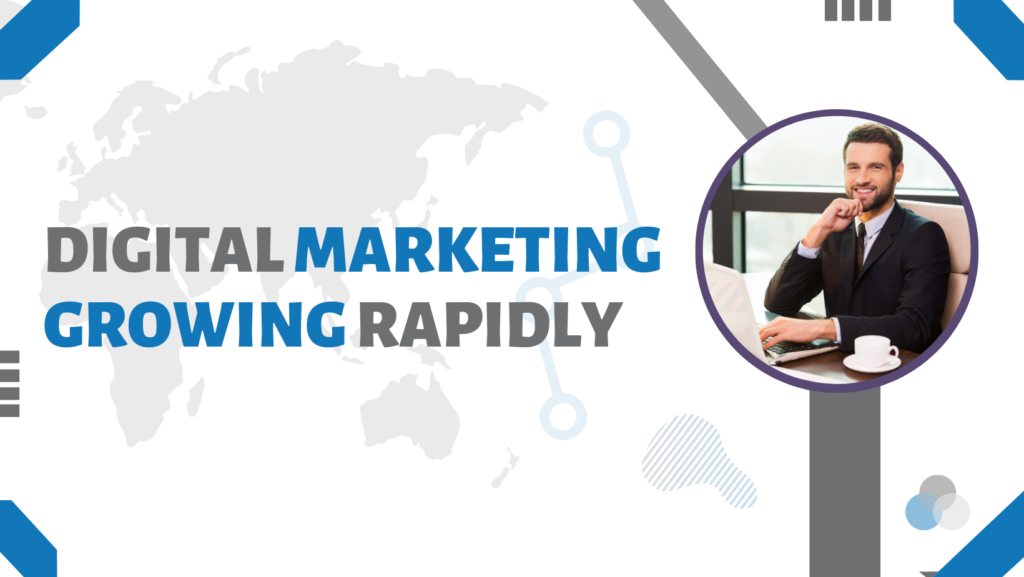Digital marketing is experiencing rapid growth due to a combination of factors, including:
Widespread Internet Usage: The increasing global internet penetration means more people are online, providing a vast and accessible audience for digital marketing efforts.
Accessibility of Devices: With the proliferation of smartphones and other connected devices, consumers have constant access to the internet, making it easier for marketers to reach them through various digital channels.
Targeted Advertising: Digital marketing allows for precise targeting based on demographics, interests, behaviors, and other factors. This increases the efficiency of advertising campaigns and reduces wasted ad spend.
Quantifiable Outcomes: Digital marketing offers immediate access to data and analytics, empowering marketers to precisely monitor campaign performance. This data-driven approach enables them to make informed decisions and optimize strategies in real time.
Cost-Effective: Digital marketing often offers better return on investment (ROI) compared to traditional marketing methods. It can be more cost-effective, especially for small businesses with limited budgets.
Diverse Digital Channels: Marketers can utilize a wide range of digital channels, including social media, email marketing, search engines, display advertising, content marketing, and more. This diversity allows them to reach a broad or niche audience depending on their goals.
Personalization: Personalized marketing is made easier through digital channels, enabling businesses to tailor content and offers to individual preferences, increasing customer engagement and loyalty.
Global Reach: Digital marketing transcends geographical boundaries, making it possible for businesses to reach a global audience without the need for a physical presence in multiple locations.
Convenience for Consumers: Consumers appreciate the convenience of online shopping and easy access to information. Digital marketing caters to these preferences, making it more likely that consumers will engage with brands online.
Adoption of E-commerce: The growth of e-commerce platforms and online marketplaces has provided new opportunities for digital marketing. Businesses can promote their products directly to online shoppers.
Social Media Influence: Social media platforms have become influential marketing channels, with billions of active users. They provide a way for brands to engage with their audience, build communities, and create brand advocates.
Adaptive Technology: Advancements in technology, including artificial intelligence (AI) and machine learning, have enabled more sophisticated targeting and automation in digital marketing.
Content Marketing: Content-driven strategies have gained prominence in digital marketing, allowing businesses to provide value to consumers, build trust, and establish thought leadership.
Data Privacy and Regulation: While data privacy regulations, like GDPR and CCPA, have introduced challenges, they have also led to more transparent and ethical marketing practices.
Changing Consumer Behavior: Consumer behavior has evolved with a preference for digital interaction, online research, and the convenience of online shopping.


